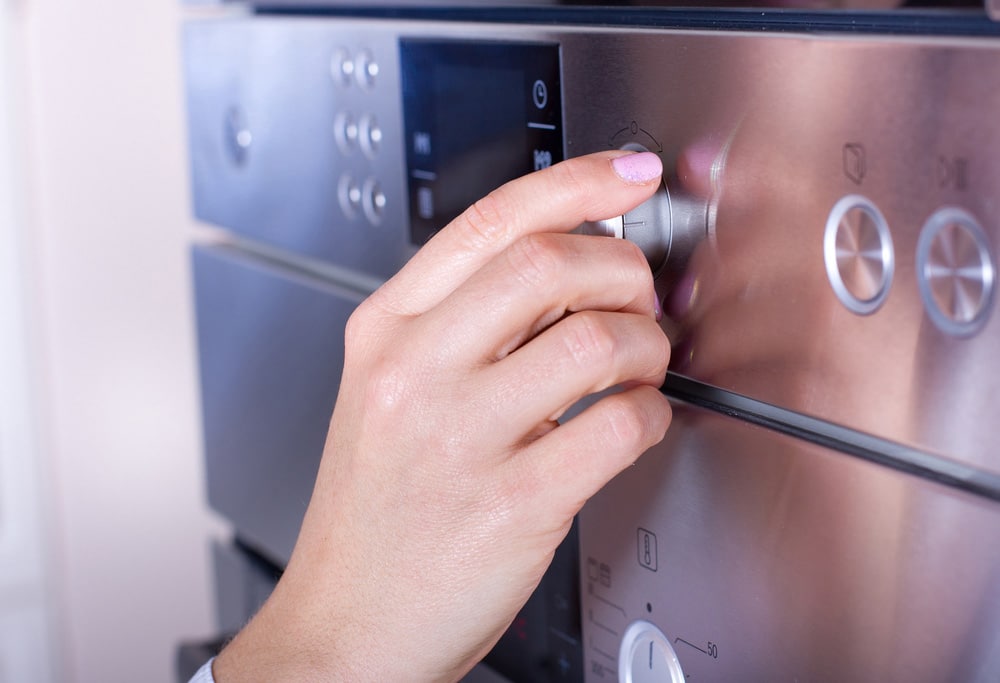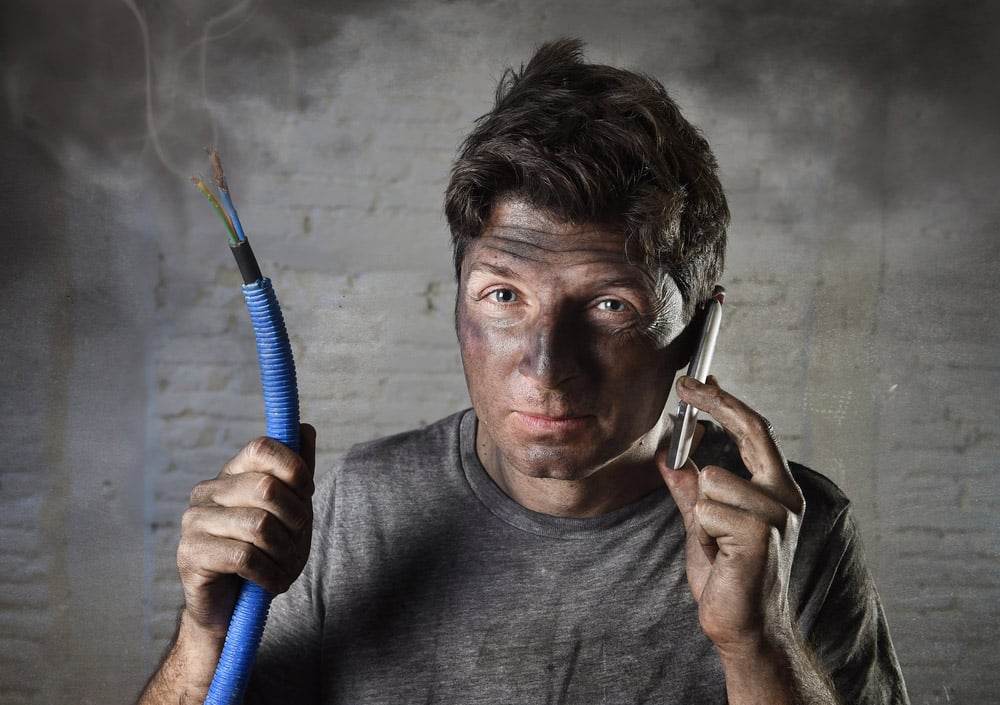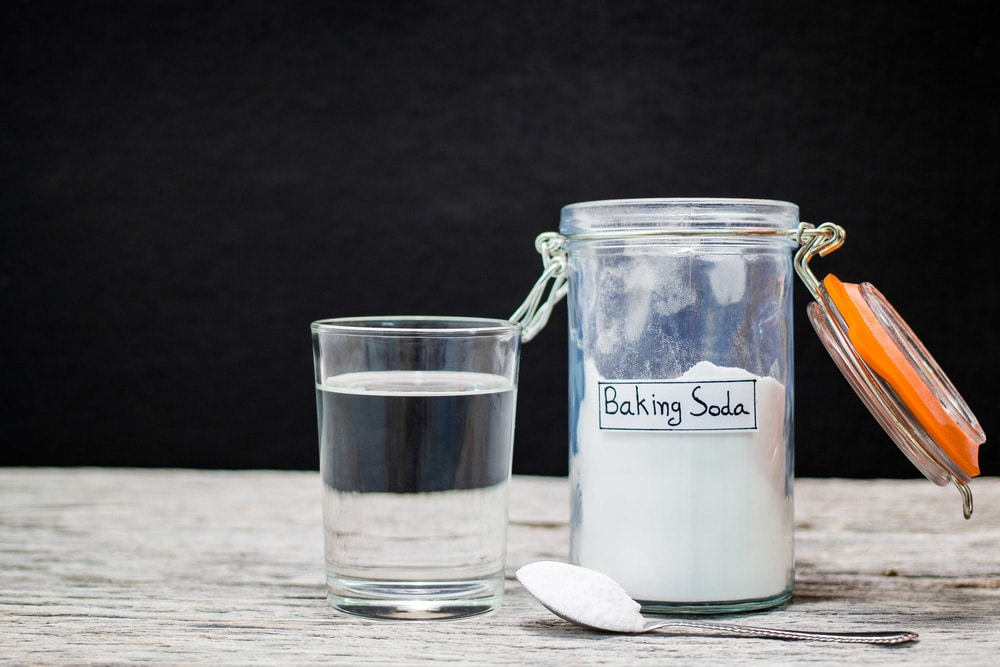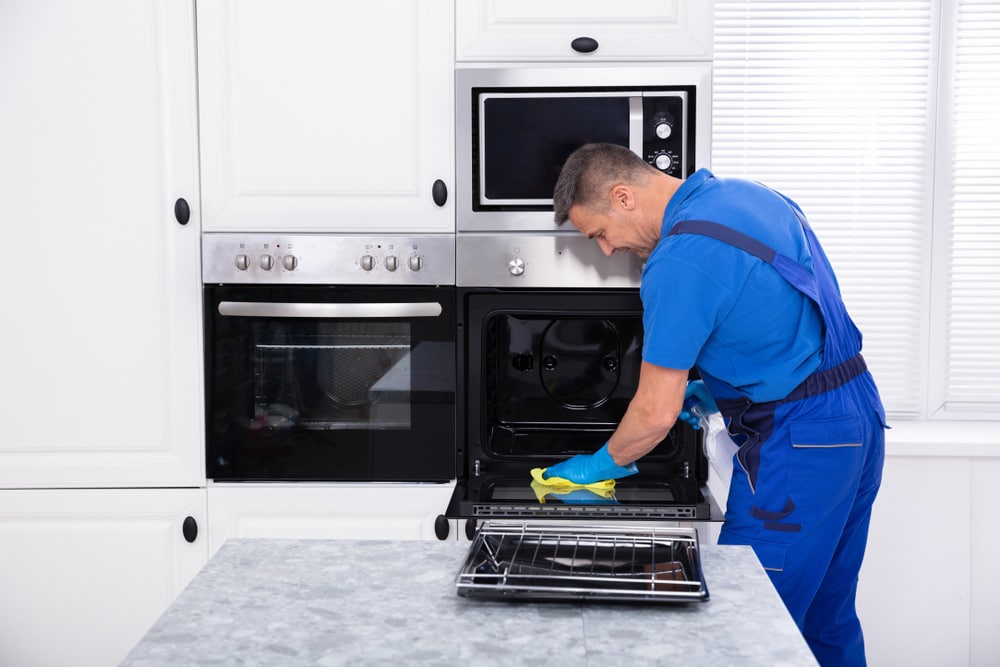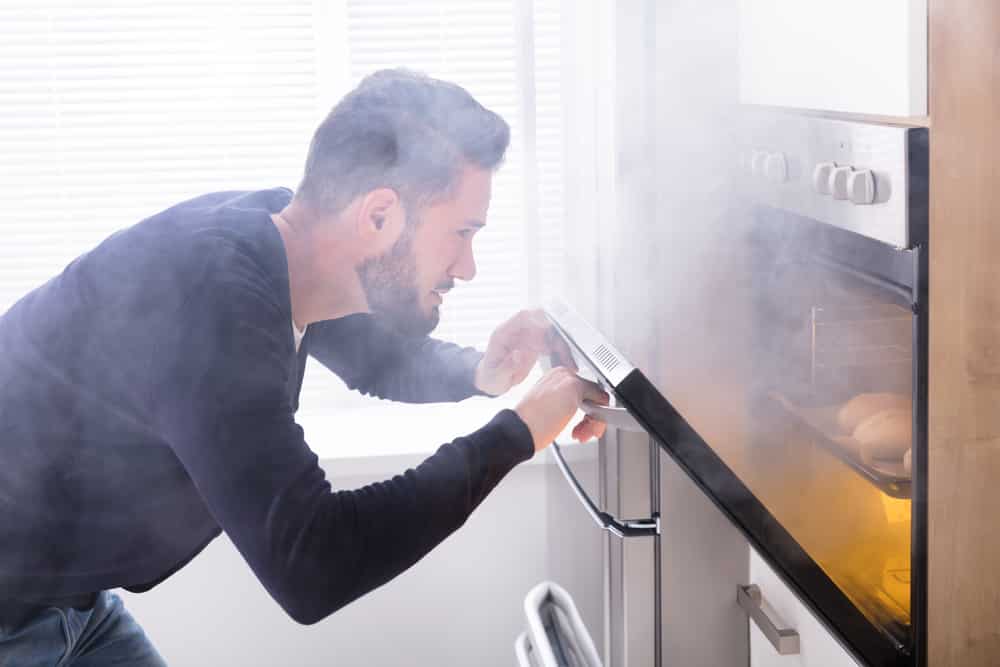
We’re often dismayed when we see wildfires and the thousands of dollars’ damage they cause. But did you know that there is also a risk of fire right in your home? Fires are caused by the chemical reaction of oxygen in the air with a fuel such as oil.
Both electric and gas stoves can cause fires, with cooking being a major cause of home fires. The burning question is, “If your oven has caught fire, is it safe to use?”
What causes a fire in an oven?
Smoke from any kind of fire is dangerous. It contains carbon monoxide, carbon dioxide, and particulate matter, which is another name for soot. Smoke can contain many different chemicals, with the amount in the smoke depending on what is actually burning.
Some people don’t only use their oven for baking and cooking. They put socks in to dry or they forget they quickly placed items in the oven to store for a while. A fire can also be started by –
- bits of leftover food scraps
- damaged electrical parts
- oil, fat, or grease that has splattered
- foreign items that you forgot in the oven
Oven Caught Fire Is It Safe to Use
Fire extinguishers leave powdery residue and chemicals
Some people grab a fire extinguisher as soon as there’s a fire in the oven. If you use a fire extinguisher to put out your oven fire, there will be a powdery residue and chemicals inside your oven. It would be unsafe to use your oven in this condition.
Once the oven has cooled down and is safe to touch, you can then start to clean the residue inside. Cleaning this up with your regular cleaning products or a non-toxic home-made cleaner can allow you to use your oven safely to cook meals.
Cleaning your oven will prevent any chemicals and odors from tarnishing your food. Some people recommend a vacuum cleaner to remove all the loose residue inside your oven.
Allow the fire to die out on its own
Acting out of impulse and spraying water everywhere or using your fire extinguisher in a frantic way may not be a good idea. It may be difficult to behave calmly when there is a fire burning inside a kitchen appliance, but a good tip is to leave the oven door closed.
It is highly probable that the fire will die out on its own. Fire feeds off oxygen, and opening the oven door allows fresh air in and the fire to rage to even higher levels. Without oxygen, the fire may well fizzle out on its own.
- Turn your stove off immediately
It is best to turn off your stove immediately. It is only if the fire rages on without showing any signs of stopping that you should call 911 or the local fire department. If, however, the fire has died out, before opening the oven door, open your windows and doors.
This allows the smoke to clear before you examine the inside of your oven. If you have any ventilation fans, turn them on so that the smoke is forced outside.
If you open the oven door too quickly, the air could still be piping hot so that it ignites your hair. It could also burn your skin. Inhaling the hot air can even cause burns to your upper respiratory tract.
An electrician can give your oven ‘the green light’
If your oven has caught fire, you will want to know if you can use your oven again. If there was no significant damage to your oven after the fire, it won’t be necessary to call in an appliance repair technician.
If there are circuit boards or any electronic features that have been damaged, you won’t be able to use your oven and may well have to get a new stove. A good idea is to first call an electrician to check if there are any burned wires.
The electrician can also inspect your oven for any further risk of fire. If you get the go ahead that all is safe, then you have to face the clean up part.
Will your oven be safe to use after applying commercial cleaning products?
Cleaning your oven can put doubt in your mind. Will your oven be safe to use once you have cleaned it with the cleaning products you have in your cupboard? Are commercial oven cleaners capable of getting rid of not only the soot but also nasty odors in the oven?
These oven cleaners are available in different forms—liquids, aerosols, and foams—but you should always check the manufacturer’s recommendations for cleaning your oven.
You can make your own non-toxic oven cleaner
Some people prefer to make their own oven cleaner. These oven cleaners don’t contain harsh chemicals. You don’t even have to wear gloves to use them, and they’re affordable to make. With this type of oven cleaner, you can safely say that your oven is safe to use after a fire.
- Baking soda, water or vinegar
Baking soda is non-toxic and is excellent for getting rid of oven grease. It neutralizes acids and breaks down grease, allowing you to easily mop up oven debris. You can use your oven immediately after cleaning it with baking soda. Baking soda is also excellent for removing odors.
- You simply mix half a cup of baking soda with 3 tablespoons of water or vinegar.
- Once you’ve made a paste, you can smear it over the dirty parts while avoiding some parts, such as the heating elements.
- After leaving the paste for 20 minutes, you can wipe it all off with a damp cloth.
Professional oven cleaners are an excellent option
If you aren’t confident enough to clean your oven thoroughly, there are professional oven cleaning companies that can do the job for you. They will –
- Do a thorough inspection of your oven.
- Use oven cleaning products that are safe to use and won’t taint your food.
- Remove all debris, grease, and bacteria safely.
- Know that modern ovens have fans that can collect grease and how to remove them.
- Clean the oven roof too, as the roof is often the dirtiest part of the oven and it is where most oven fires start.
- Remove oven components to ensure thorough cleaning, and then reassemble everything properly.
- Ensure they leave you with a clean, hygienic oven which you can use immediately.
So yes, you can use your oven safely after a fire, but if in doubt, get an electrician in to check that it can safely be switched on again. You want to be 100% sure that it won’t cause another fire.
After a fire, you must clean the oven and make sure that all components are free of toxic chemicals that could taint your food. Then it’s time to once again build up a strong relationship with your oven and keep everyone guessing as to what you’ll be cooking up next.
